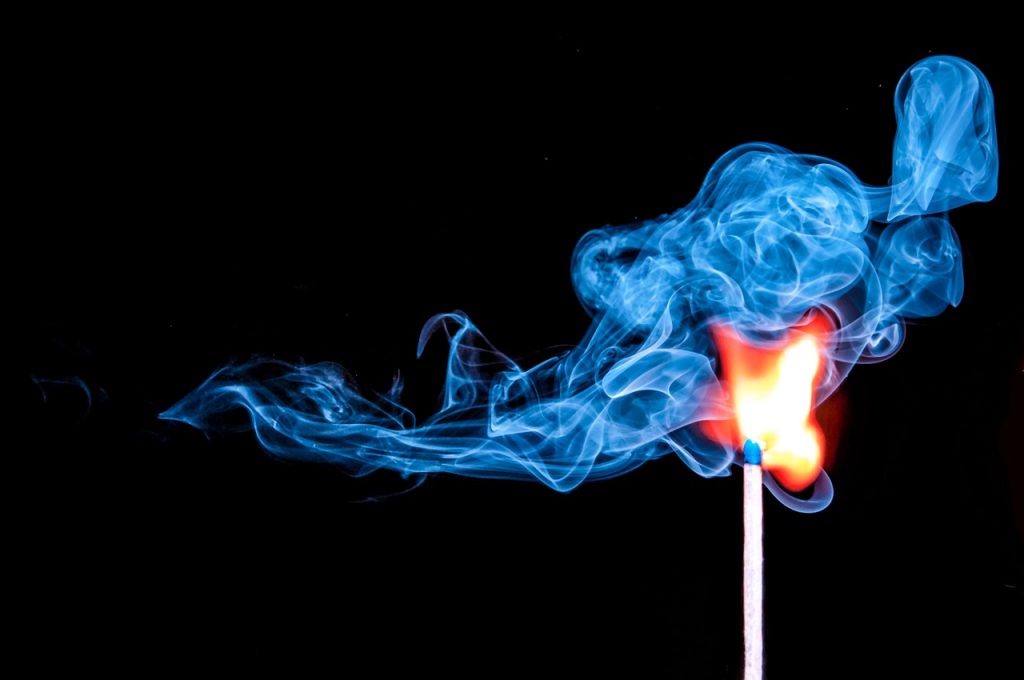Arson Crimes in Michigan – Setting Fires, Burning, and Preparation to Burn
Michigan prosecutors aggressively prosecute crimes involving burning buildings and personal property due to the danger to people and animals and the expenses incurred by the community and insurance companies.

Michigan Attorneys for Arson Crimes – We can help you!
Arson crimes in Michigan are complicated from a prosecution and defense standpoint. When faced with a strong defense, Prosecutors often have to rely on opinion evidence of experts and circumstantial evidence to prove their case beyond a reasonable doubt. Even when the proof is overwhelming, a backstory almost always explains or mitigates the reason for starting or attempting to start a fire. It is essential to have a lawyer who has the influence to overcome a judge or prosecutor’s initial inclination to believe that the defendant had malicious intent.
Arson Offenses and Penalties
First Degree Arson – First-degree arson is the most serious of Michigan’s arson crimes. It occurs when someone willfully or maliciously burns, damages, or destroys by fire or explosion a multi-unit building with at least one dwelling (occupied or vacant) or a building or structure, and the arson results in an injury.
- It does not matter if the person committing arson is the owner. The government can charge you with burning your property. First-degree arson carries a potential penalty of life in prison, a $20,000.00 fine, or 3 times the value of the property lost, whichever is greater.
Second Degree Arson – Second-degree arson is the burning, damaging, or destroying of a dwelling by fire. It does not matter if the home is occupied or vacant. Second-degree arson is punishable with up to 20 years in prison, a $20,000.00 fine, or 3 times the value of the property lost, whichever is greater.
Third Degree Arson – Damage or destruction of an occupied or unoccupied building, personal property valued at over $20,000, or personal property valued over $1,000, and a person with a prior arson conviction committed the offense. The potential penalty for third-degree arson is 10 years in prison and a $20,000.00 fine or 3 times the value of the property lost, whichever is greater.
Fourth Degree Arson – If personal property valued at more than $1,000.00 but less than $20,000.00 is lost to fire or explosion, or if property worth less than $200.00 where the defendant has a prior arson conviction, the penalty is 5 years in prison, and a $10,000.00 fine or 3 times the value of the destroyed property, whichever is greater. This section explicitly addresses damage to woods or lands, regardless of whether the person damaging the lands is the owner or if the property was maliciously or negligently damaged.
Fifth Degree Arson – Damaging or destroying personal property valued at $1,000.00 or less by fire or explosives by a person with one or more prior convictions for arson is a 1-year misdemeanor and a $2,000.00 fine or 3 times the value of the property, whichever is greater. Fifth-degree arson is the least serious of the arson crimes in Michigan.
Prohibited Fire or Explosion – Willfully and maliciously burning personal property valued over $1,000 or between $200 and $1,000 by a person with a prior arson conviction is punishable by up to one year in jail. If the value is less than $200 or the offense involves the negligent burning of a hotel or its contents, the maximum sentence is up to 93 days.
Arson of Insured Property – Aside from the sections above that outlaw the damaging or destruction of property, the government can also prosecute someone for burning property insured with intent to defraud an insurance company. If the structure is a dwelling, the possible penalty is life in prison and a fine of $20,000.00 or 3 times the property’s value destroyed, whichever is greater. The insurance industry has a powerful lobby and exerted influence on the legislature to make Arson of Insured Property one of Michigan’s most serious arson crimes.
- Destroying buildings other than dwellings carries a penalty of 20 years in prison and a $20,000.00 fine or 3 times the property’s value, whichever is greater.
- If a person destroys any personal property with the intent to defraud an insurance company, the penalty is 10 years in prison and a $20,000.00 fine or three times the value of the damaged property, whichever is greater.
Preparation to Burn – The actual title of this crime is “Using Inflammable or Explosive Materials Near a Building or Personal Property;” however, the offense is usually referred to as “preparation to burn.” It means preparing to burn or blow up the property. It is illegal to place, arrange, distribute, or use flammable or explosive materials near a building or personal property with the intent to commit arson in any degree or to aid and abet someone else in committing it. Preparation to Burn is one of the only arson crimes in Michigan that does not require a fire, charging, or burning.
- As with the above crimes, preparation to burn carries stepped-up penalties based on the nature and value of the thing burned. The potential sentences are not as severe as actually burning property. For example, preparing to burn a dwelling carries a possible 15 years in prison rather than life in prison.
Defenses to Arson, Burning, and Preparation to Burn
It is not a defense to an arson charge that the person who burned the property was the owner. Because fires are hazardous and expensive to the community and to the health and lives of firefighters who have to stop the fire, the legislature determined that a person cannot burn their property. Although these offenses are aggressively prosecuted in Michigan, there are several viable defenses to arson crimes.
There are defenses to every case in the minds of the best attorneys. It is the job of an astute and intelligent defense attorney to examine the facts and devise a legitimate defense or mitigating argument. Some possible defenses are as follows:
- The building burned was not a dwelling or designed to be a dwelling;
- The personal property burned was abandoned, constituted waste, and is not the kind of property protected by the law;
- The burning, fire, or explosion was an unintentional accident or an act of God;
- Flammable material or explosives were placed near a building or personal property with no intent to burn them but rather were stored in such place innocently;
- The value of the property destroyed was not as high as claimed by the prosecutor.
- The fire was an accident or a mistake.
- The person charged was mistakenly identified.
- The fire was set under duress or necessity.
Reduction of Arson Charges and No-Jail Sentences
If there is overwhelming evidence of intent to commit arson and perhaps a full confession, there are still things a top-rated defense attorney can do to help the client. The best attorneys never give up searching for a way to help a client, no matter how dire the case seems. Even if a case can’t be dismissed and thrown out of court, a superior defense attorney will find a way to reduce the impact of a case on the client, such as persuading the judge to order a term of probation with community service, as opposed to jail or prison for arson crimes. Alternatively, a defense lawyer in Michigan who is a savvy and influential negotiator may convince the prosecutor to reduce charges in exchange for a plea. A plea to a reduced charge is called a plea bargain.

Expert Defense Attorneys for Arson Charges in Michigan
The Defense Team at LEWIS & DICKSTEIN, P.L.L.C. has accumulated decades of superior results for clients because we go the extra mile in every case and never give up when representing clients on arson crimes in Michigan or any felony or misdemeanor offense. We have successfully defended clients in Wayne, Oakland, Macomb, Livingston, and Washtenaw counties and courts throughout Michigan and federal court. Give us a call for a free consultation if you have a misdemeanor or felony arson charge against you or are under investigation. We will explain how we can help you.
Call us today at (248) 263-6800 for a free consultation or complete an online Request for Assistance Form. We will contact you promptly and find a way to help you.














